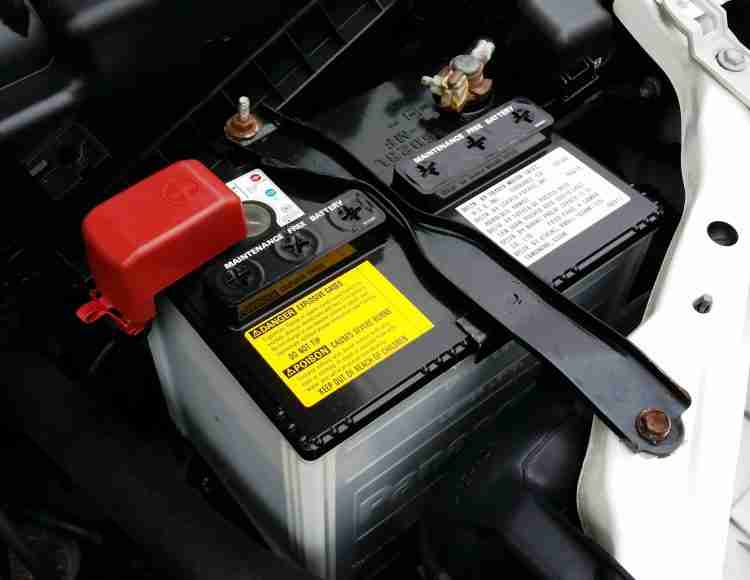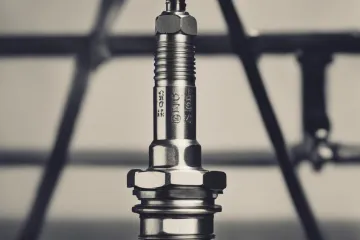Car Battery Weight and What To know It

Everything You Need to Know About Car Battery Weight
Have you ever wondered how much does a car battery weigh? The truth is, not many people know the weight of their battery. However, knowing this information can be very helpful. Today you will learn more about battery weight and why it’s important to know how much your battery weighs.
What Is the Average Weight of a Car Battery?
While there are many different sizes of car batteries, most people have a common type. On average, a typical battery weighs between 40 and 60 pounds. This is the most common battery weight range.
Why You Should Know the Weight of Your Car Battery
Believe it or not, there are many reasons you should know the weight of your car battery. Below are a few very important reasons why you should memorize the weight of your battery.
Replacement
When it comes time to replace your battery, you will need to purchase one that matches the weight of your old battery. Battery weight can affect your car’s performance, and it can determine power capacity. Fitting your car with a battery that weighs less than your old one, will significantly reduce the performance of your vehicle. It is always a good idea to find the right-sized battery.
The Ability to Lift the Battery
Let’s face it! Not everyone has the ability to lift 60 pounds. If you’re in that camp, it would be helpful to know how much your battery weighs before tackling a replacement job. Lifting a heavy battery on your own may even cause you to become injured. So, before you replace your battery find out how much it weighs. If your battery weighs more than you can lift, you should ask a friend for help. Additionally, you may want to consider having your new battery professionally installed. This will take a load off of you if you do.
Terminal Location
Batteries with different weights will often have different terminal styles. Some vehicle batteries have terminals located on the top, while others will have terminals located on the side. Knowing both the weight and terminal type your battery has will make your life much easier.
Why Are They So Darn Heavy?
You might be wondering why a car battery is so darn heavy in the first place. The answer lies in the design of the battery. Most car batteries are constructed of a mixture of lead and a water-based solution of electrolytes. This mixture is very heavy and is the reason why your car battery weighs so much. The combination of water and lead is used to provide your car with the cranking power it needs to start.
On the other hand, if you’re driving an all-electric car, the weight of your battery may be much less. Electric vehicles use lithium batteries which are used to deliver power to the motor. Lithium batteries last longer than traditional lead-acid batteries, but they have a much larger purchase price. These batteries can also face performance issues in very cold weather.
Common Battery Weights by Group
Car batteries are placed in groups for identification purchases. These groups can identify the battery type, terminal location, nominal voltage, and weight. Below you will find each group and learn more about them. Keep in mind that these are the most common battery groups. If you have a hybrid or all-electric car, your battery will not fall into one of these groups.
- Group 47: Batteries in this group weigh 35 pounds. One of the common car models that use this battery group is the Honda Accord.
- Group 35: Batteries in this group weigh 39 pounds, and the most common vehicle model that uses this battery is the Toyota RAV4.
- Group 26R: Batteries in this group weigh 28.4 pounds, and the most common vehicle model that uses this battery is the Subaru Impreza.
- Group 24F: Batteries in this group weigh 45 pounds, and the most common car model that uses this battery is the Toyota Corolla.
- Group 65: Batteries in this group weigh 44.6 pounds, and the most common vehicle model that uses this battery is the Ford Explorer.
- Group 48: Batteries in this group weigh 46.7 pounds, and the most common car model that uses this battery is the Ford Focus.
- Group 94R: Batteries in this group weigh 53.6 pounds, and the most common car model that uses this battery is the Nissan Altima.
- Group 51: Batteries in this group weigh 27 pounds, and the most common car model that uses this battery is the Honda Civic.
These are the most common types of battery groups, and your battery probably belongs to one of the above.
How To Find the Weight of Your Car battery
Now that you know batteries are grouped, it will make it easier for you to find the weight of your battery. Once you know the weight of your battery, you can use the information above to find out which group it belongs in. This will make ordering a new battery easy.
One of the quickest ways to determine the weight of your battery is by reading the label. Most battery labels will be on the top of the battery. There will be lots of information on the label including the month and year the battery was installed, and the weight of the battery in pounds. However, over time your battery’s label may have worn away. If this happens, you can find the recommended factory battery weight for your car in your owner’s manual.
The Takeaway
As you can see, there are many reasons why it is important to know your car’s battery weight. Knowing the weight of your battery can help you pick the right replacement, which is vital to the performance of your vehicle. The right battery will provide you with all the power you need to safely navigate the road. So, before you go battery shopping, make sure you find out the factory-recommended group type of your battery. This will help you determine which battery is right for you.













No Comment